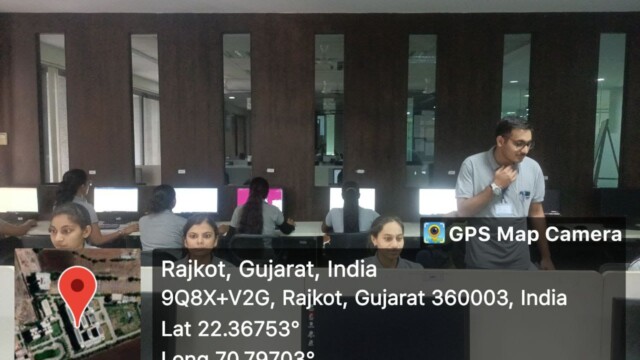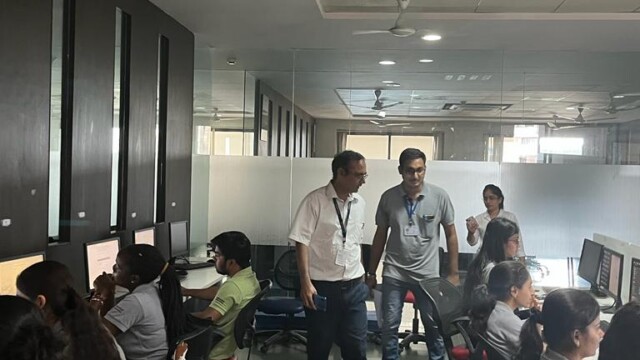This blog introduces cloud computing, its types, and its career scope in the field. Cloud computing pertains to providing computing resources through the internet. The three primary cloud computing models are Infrastructure as a Service (IaaS), Platform as a Service (PaaS), and Software as a Service (SaaS). The career scope in cloud computing is broad, with several job roles available, such as cloud architect, engineer, developer, operations engineer, security engineer, consultant, and sales representative.
The skills needed to pursue a career in cloud computing include knowledge of cloud platforms, virtualization and containerization, networking, security, automation, programming, data management, and soft skills.
What is cloud computing?
The provision of computing resources, including servers, databases, storage, and software via the Internet is known as cloud computing. Instead of relying on physical infrastructure, cloud computing relies on remote servers that are accessed through the Internet. This means that users can access and use these resources from anywhere, at any time, without needing to invest in their own hardware.
There are several advantages that cloud computing brings, such as scalability, cost efficiency, and flexibility. It is used by individuals, businesses, and organizations of all sizes to store and process data, run applications, and manage their IT infrastructure.
Types of Cloud Computing Models
Infrastructure as a Service (IaaS)
IaaS, which stands for Infrastructure as a Service, is a cloud computing paradigm that provides users with virtualized computing resources via the Internet. With IaaS, users have the ability to access on-demand computing resources such as servers, storage, and networking without the need for any physical hardware. This means that businesses can benefit from scalable computing resources without having to invest in expensive infrastructure.
Further, IaaS allows users to have complete control over their infrastructure and customize resources to meet their specific requirements. This model is particularly beneficial for businesses that require complete control over their computing infrastructure and have fluctuating resource requirements, as IaaS provides a flexible and cost-effective solution.
Platform as a Service (PaaS)
PaaS is a cloud computing model. It provides a platform for developing, deploying, and managing applications. PaaS providers offer a pre-configured platform. It includes an operating system, a database, and development tools.
Developers can use this platform to build and deploy their applications. They don’t have to worry about the underlying infrastructure. PaaS is suitable for businesses. It’s for those who want to focus on developing applications.
PaaS is a cost-effective solution. It eliminates the need to purchase and maintain hardware. PaaS also allows for scalability. It can handle an increase in traffic and users.
Software as a Service (SaaS)
Software as a Service (SaaS) is a popular cloud computing model that has transformed the way businesses access and use software applications. With SaaS, users can access applications remotely, over the Internet, without having to install or maintain the software on their local computers or servers. This means businesses can save time and money on hardware and software investments, as well as IT support and maintenance. SaaS providers handle all the backend operations, including hosting, security, upgrades, and bug fixes. This allows businesses to focus on using the software to enhance their productivity and efficiency.
SaaS has become a popular option for businesses of all sizes, from startups to large enterprises, across various industries, including finance, healthcare, education, and more.
Career Scope
Cloud computing has become a crucial aspect of the modern technology landscape, and the demand for cloud computing professionals is expected to grow in the coming years. There are several career options available in cloud computing, including:
Cloud Architect: A cloud architect is responsible for designing and implementing cloud-based solutions that meet the organization’s business needs.
Cloud Engineer: A cloud engineer is responsible for developing, maintaining, and supporting cloud infrastructure and services.
Cloud Developer: A cloud developer is responsible for developing applications that run on cloud infrastructure and services.
Cloud Operations Engineer: A cloud operations engineer is responsible for managing the deployment, monitoring, and maintenance of cloud-based solutions.
Cloud Security Engineer: A cloud security engineer is responsible for securing cloud infrastructure and services from potential security threats.
Cloud Consultant: A cloud consultant helps organizations to assess their cloud computing needs and provide advice on how to implement cloud-based solutions.
Cloud Sales Representative: A cloud sales representative is responsible for selling cloud-based solutions to organizations.
Overall, the career scope in cloud computing is quite broad, and there are several career options available depending on your interests and expertise. As more and more organizations adopt cloud computing, the demand for cloud professionals is likely to continue growing.
Skills needed
Here are some essential skills needed to pursue a career in cloud computing:
Knowledge of Cloud Platforms: You need to have a good understanding of popular cloud platforms such as Amazon Web Services (AWS), Microsoft Azure, and Google Cloud Platform (GCP).
Virtualization and Containerization: A solid understanding of virtualization technology and containerization tools such as Docker, Kubernetes, and VMware is crucial for a cloud computing career.
Networking: Understanding networking concepts, such as IP addressing, routing, DNS, and load balancing, is important for designing and deploying cloud architectures.
Security: As cloud computing involves storing sensitive data and information, you need to have a good understanding of security principles such as identity and access management, encryption, and security protocols.
Automation: Knowledge of automation tools such as Ansible, Chef, and Puppet is important to automate cloud infrastructure deployment and management.
Programming: Familiarity with programming languages such as Python, Java, and JavaScript can be useful in automating processes and building cloud-based applications.
Data management: Understanding data storage and management in the cloud, including databases, data warehousing, and data lakes, is important in cloud computing.
Soft skills: In addition to technical skills, soft skills such as communication, teamwork, problem-solving, and time management are essential for a successful cloud computing career.
In order to pursue a career in cloud computing you will surely need a professional degree such as BCA or BTech. Another way is to enrol on a Cloud Computing course offered by Marwadi University, one of the best educational institutes that offer a full-on world-class experience to the students!
















 International Airport
International Airport  Railway Station
Railway Station  GSRTC Bus Port
GSRTC Bus Port 


